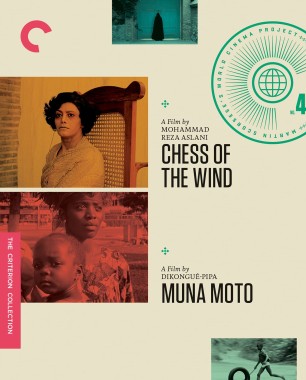“I Am Muna moto”

Cameroonian filmmaker Dikongué-Pipa’s 1975 debut feature, Muna moto, is a gem of cinema that—because of the structural problems and fundamental biases that govern the domestic and global distribution of African films—has taken a very long time to reach audiences. After premiering at the Venice Film Festival, the movie won a top award at each of Africa’s two most important film showcases: the Étalon de Yennenga at the Pan African Film Festival of Ouagadougou (FESPACO), in Burkina Faso, and the Tanit d’argent at the Carthage Film Festival (JCC), in Tunisia. However, Muna moto was not properly celebrated in Cameroon itself and did not circulate widely elsewhere.
Dikongué-Pipa’s overarching project as a filmmaker is to explore ways in which the cinematic medium can be remolded into an African visual language, however broadly understood: how can cinema be made to speak African cultural forms? He believes that every cinematic tradition is at its best when it articulates a particular sense of and draws its strength from a culture, almost as if permission must be granted to the filmmaker by the culture—which he must celebrate as well as critique for its abuses. Muna moto is his manifesto on the deployment of the language of cinema: its nature, its expressive possibilities, and its capacities to bring about radical social change and expand the horizons of what can be felt by humans. With it, the filmmaker interrogates the viewer on a multitude of levels, from the straightforward to the esoteric, abstract, metaphysical, and poetic, as well as the political, cultural, economic, and social.
The story of Muna moto, whose English title is The Child of Another, is a relatively simple one. Two young Duala people who live in the same village, Ngando (David Endene) and Ndomé (Arlette Din Bell), love each other and wish to marry. While Ndomé’s family initially accepts their love, Ngando’s inability to gather the enormous amount of money necessary for the dowry gets in the couple’s way. He requests help from his uncle Mbongo (Abia Moukoko)—who, by custom, has inherited Ngando’s father’s household, wife and children included—hoping that his uncle will embrace the dutiful fatherly role. But instead, Mbongo competes with his nephew for Ndomé, with whom he hopes to finally have a child of his own, and, in a memorably acerbic, drunken scene, accuses all five of his current wives of infertility. The drama of the film revolves around this competition, as well as the forceful resistance that Ngando and Ndomé put up against a system that seems to conspire against them. Ultimately, Mbongo will succeed in taking over both Ndomé and the child she conceived out of wedlock with Ngando, her love. Unable to bear his uncle’s imposture, Ngando finally attempts to steal the child during the sacred Ngondo celebration, meant to heal and renew the community and reconnect it with its history and identity.








